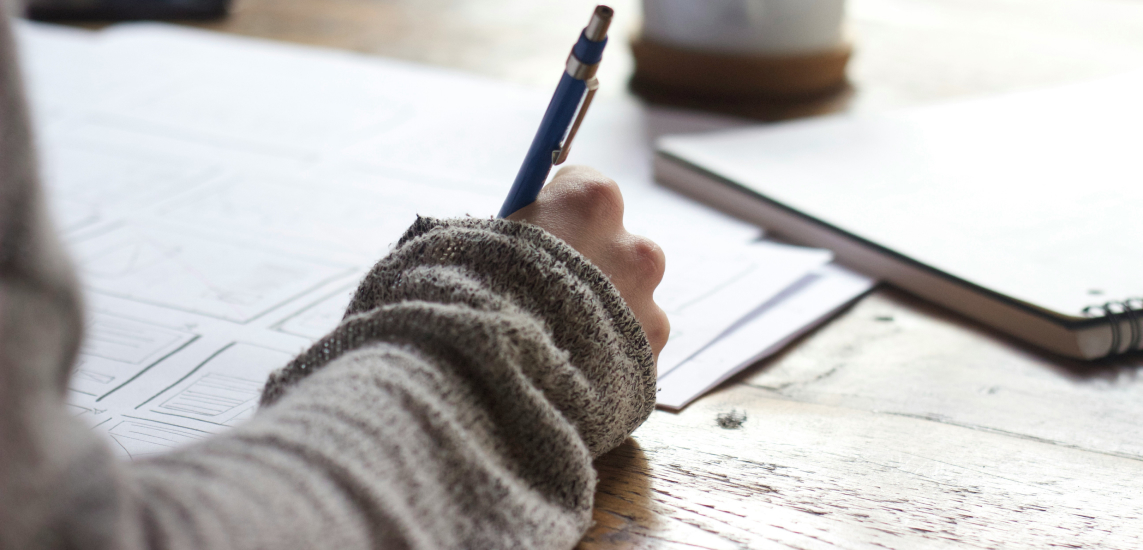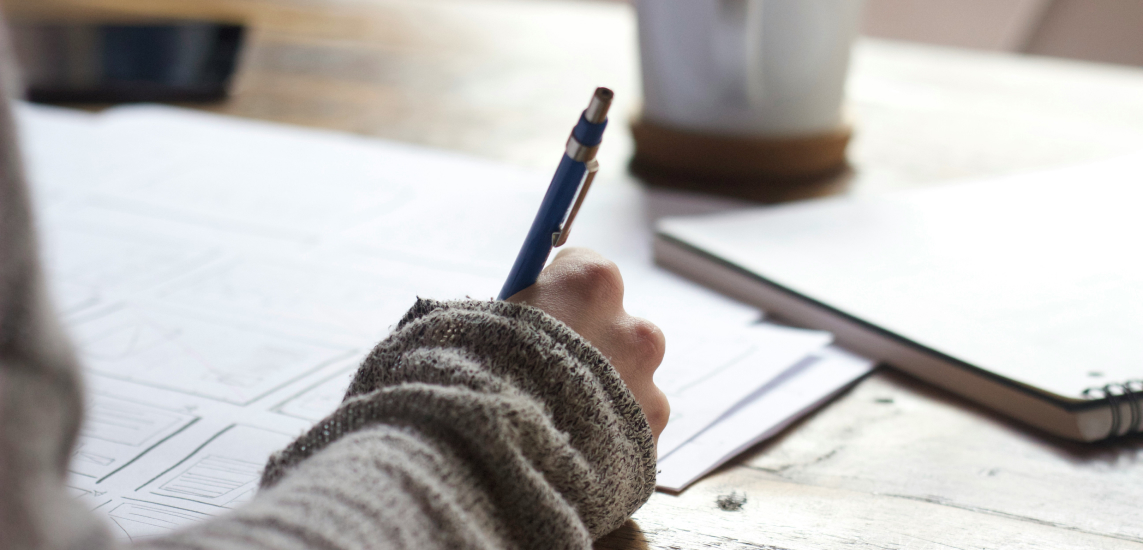This article was created using personal insights from Insight Timer’s meditation teachers.
Staying focused while studying can feel like an uphill battle, especially when distractions and stress creep in. Whether you’re preparing for a big exam or trying to digest a challenging topic, it’s easy for your mind to wander. Fortunately, meditation for studying offers a natural solution to this all-too-common problem.
Meditation is more than just a way to relax—it’s a powerful tool for enhancing focus, improving memory, and managing stress. This article explores the science behind meditation, key benefits for students, practical techniques for integrating meditation into your study routine, and resources for getting started. Ready to see how meditation can transform your study habits?
Key takeaways
- Meditation enhances focus and productivity by training the mind to stay present, making it easier to concentrate and avoid distractions while studying.
- Mindfulness and guided meditation techniques help reduce stress and anxiety, particularly during exams, improving both academic performance and well-being.
- Integrating short meditation sessions into your study routine, whether before, during breaks, or after studying, can lead to better memory retention and mental clarity.
- Insight Timer offers guided meditations and resources specifically designed for focus and relaxation, making it an ideal tool for students looking to improve their study habits.
The science behind meditation and learning
Meditation can rewire the brain in ways that are scientifically proven to enhance learning. Research shows that meditation techniques have the power to enhance cognition, especially when it comes to short-term memory and attention. For students, this means:
- sharper focus
- improved comprehension
- better retention of information
More specifically, mindfulness meditation can train the brain to stay in the present and reduce the tendency for the mind to drift. This leads to longer periods of sustained attention, allowing you to concentrate more effectively.
According to Vanessa Loder, an Insight Timer meditation teacher:
“By training the mind to bring awareness back to the present moment again and again, students of meditation learn to enhance their ability to focus. Meditation is a way to begin noticing where you are putting your focus by default and intentionally choose where to focus instead.”
The key benefits of meditation for students
Meditation offers a host of benefits for academic performance. Here are some of the most impactful ways that meditation helps students:
- Improved focus: Meditation helps our brains maintain attention for longer periods, reducing the amount of time spent daydreaming or getting distracted. Vanessa Loder notes that “as you improve your ability to focus, you will naturally improve productivity as you’re not as easily distracted.”
- Reduced stress and anxiety: Exam pressure can create stress and anxiety. Meditation calms the nervous system, lowering stress hormones and allowing for more relaxed study sessions.
- Better memory retention: Studies show that regular meditation can boost your ability to store and recall information, making it easier to remember what you’ve learned.
- Increased mental clarity: Practicing meditation can also clear mental clutter, allowing you to focus on the task at hand.
- Enhanced emotional regulation: Managing emotions like frustration or anxiety becomes easier with mindfulness, helping you stay calm even when studying gets tough.
- Improved well-being: Beyond academic performance, meditation contributes to overall well-being and can help you maintain balance during intense study periods.
Meditation techniques for better studying
Concentration meditation for intense studying
Concentration meditation is an excellent practice when you need to dive deep into your studies without distractions. This form of meditation involves focusing on a single chosen object—like your breath or a mantra—to train your mind to stay present. Over time, this sharpens your ability to focus on one task for longer amounts of time. Here’s a simple concentration practice to try before long study sessions:
- Find a quiet, comfortable space.
- Focus on your breathing or an object to center your attention.
- Anytime your mind wanders, gently bring it back to your focal point.
- Continue for five to 10 minutes.
Charles Freligh, PhD, another Insight Timer meditation teacher, shares that focused attention meditation was crucial during his doctoral training. He says:
“I would often sit down for a long meditation prior to tackling a big assignment, like preparing a presentation or writing a paper. I would then allow the task to become the object of attention for that meditation, not in the sense of intentionally trying to figure it out, but just letting it exist in the atmosphere of my mind. Then, inevitably, the project would work itself out on its own, within the meditation.”
Vanessa Loder similarly used meditation to help her concentrate when writing her book. She shares:
“I found that if I meditated in the morning, I could write for two hours and stay focused rather than thirty to sixty minutes.”
This profound impact on productivity shows how regular meditation can improve focus during mentally demanding tasks—whether you’re studying or working.
Mindfulness meditation to stay calm during exams
Mindfulness meditation can help you manage stress and stay calm during exams. This practice encourages you to become aware of your thoughts and emotions without judgment, which can help you stay centered when feeling overwhelmed. Try this easy technique to improve your test-taking:
- Sit in a quiet place, close your eyes, and take deep breaths.
- Focus on your breath and notice any thoughts or feelings that arise.
- Allow these thoughts to come and go without attaching yourself to them. Observe the thoughts like clouds passing in the sky.
If you’re prone to feeling anxious before major exams, Vanessa Loder recommends focusing on breathing exercises. For example, deep belly breathing can activate the parasympathetic nervous system and ease anxiety—and it’s incredibly simple to incorporate into your routine! Vanessa shares:
“Any time your exhale is longer than your inhale, you activate the parasympathetic nervous system. When I suffered from severe anxiety, my mentor suggested I try box breathing and within a month, my anxiety had gone down significantly.”
Looking for more calming practices to relieve exam stress? Check out our free guided anxiety meditations—perfect for meditators of all levels.
Visualization meditation to reduce anxiety
Visualization meditation is another powerful technique for reducing exam-related anxiety and building confidence. In this practice, you visualize yourself successfully completing tasks, like finishing an exam or confidently answering questions. Here’s how:
- Find a quiet place and sit comfortably.
- Close your eyes and imagine yourself in a situation that makes you anxious (e.g., taking an exam). Take gentle, relaxing breaths.
- Visualize yourself calmly and successfully completing the task, focusing on feelings of confidence and relaxation.
By reframing a normally anxious experience in a positive light, you can minimize your negative associations with it—which can help you approach test-taking in a calm, collected manner.
Body scan meditation for relaxation and focus
A body scan meditation is ideal when you need a quick reset during a study session. This meditation technique involves bringing awareness to different parts of the body to release tension and relax. Try this simple practice:
- Lie down or sit in a comfortable position and close your eyes.
- Start by focusing on your feet and slowly move your attention upward, scanning each part of your body.
- Notice areas of tension and breathe into them, relaxing each body part with your breath.
When and how to integrate meditation into your study routine
Adding meditation to your study routine doesn’t have to be complicated or time-consuming. The key is to find moments in your day when meditation can naturally fit. Here are a few ideas for when and how to improve your study sessions:
- Before studying: Meditate for five to 10 minutes to clear your mind and set a focused intention before you study.
- During study breaks: Pause for a short meditation in between studying. Even just five minutes of deep breathing can significantly reduce mental fatigue.
- After studying: Wind down your study session with a meditation to release any stress and prepare for better sleep.
Want to meditate first thing in the morning? It can be just as effective! Play around with different times of the day to find what works best for you and your schedule. And remember, there’s no right time to meditate!
Tips for staying consistent with meditation and studying
Start with small goals
The key to maintaining a consistent meditation practice is to start small. Vanessa suggests, “Just five minutes a day can make a big difference!” Over time, you can increase this to longer sessions as it becomes a regular habit.
Create a study meditation schedule
Figure out the best time to meditate and schedule your sessions just like you’d schedule your study time. Having a set routine will help you stay accountable and make meditation a consistent part of your life.
Use guided meditations for structure
If you’re new to meditation, listening to guided sessions can help structure your practice and reduce mind wandering. Vanessa shares:
“One helpful tip to overcome where a voice is gently calling you back to the present moment, your breath, or some other area of focus. If you try to meditate in silence, sometimes your mind can wander the entire sit without you realizing it.”
Charles similarly recommends incorporating guided practices to help reduce distractions. He suggests:
“I would encourage people to search for focused attention meditations and specifically mental noting practices. I have a guided meditation practice titled “Mental Noting” that helps you continually notice when your mind has wandered away from your object of attention (the breath), and trains you to continually return your focus back to what you’re wanting to focus on.”
Check out Charles’ 21-minute Mental Noting: Focus and Concentration meditation.
Looking to build your guided practice? Insight Timer offers 200,000+ free guided meditations, with specific sessions for focus and productivity.
Stay patient with yourself
If you find it hard to stay consistent or if your mind wanders during meditation, you’re not alone. Like any new habit, it takes time and practice to see results. And many novice meditators experience similar challenges. Charles shares:
“When I began meditation, my mind became restless even after just 30 seconds or so. Very short meditations were quite difficult and even annoying. I could have viewed this as an indicator that meditation was not for me or that I was bad at it. But this experience is just a natural part of developing a new skill. So you can view this as a good sign. It’s the growing pain of your mind expanding. So just stick with it.”
Guided meditation resources for studying
Insight Timer offers a wide range of guided meditations designed to help you improve focus, reduce stress, and enhance productivity. Led by renowned experts, these practices are perfect for students looking to integrate meditation into their study routines.
Vanessa Loder recommends trying the Increase Focus and Improve Concentration meditation inspired by Robert Fritz. She shares:
“I learned this focusing technique from Robert Fritz many years ago in which you focus on specific locations in the body, building energy and focus as you go. It’s truly fascinating because you can really feel the energy building in your hands as you focus awareness there.”
Focus more easily with Insight Timer
With over 200,000 free guided meditations, Insight Timer is the ideal resource for students looking to improve their concentration and reduce stress. But it’s more than just a meditation app. Insight Timer offers 25,000+ groups where you can connect with like-minded meditators from around the world—not to mention meditation music, premium courses, and more to support your meditation journey.
Meditation for studying FAQs
Does meditation help with studying?
Yes, meditation is an excellent tool for improving focus, memory retention, and reducing stress. By calming the mind and training your attention, meditation helps you concentrate more effectively while studying.
Which meditation is good for students?
For students, many types of meditation can be beneficial, including:
- mindfulness
- concentration
- body scan
These techniques help with attention, test-taking anxiety, and memory retention.
Is it better to meditate before studying?
It depends. While there is no right time to meditate, some find it helpful to do so before a study session. Meditating can be a great way to set the tone for productive studying.
How long should I meditate to see benefits in my studying?
Even just five minutes of meditation a day can yield noticeable improvements in focus and stress management. Over time, increasing to 10-20 minutes can bring even greater benefits.
Can meditation improve exam performance?
Absolutely! Meditation helps calm exam-related anxiety, improves focus, and enhances memory, all of which can lead to better performance during exams.
Citations
Pragya, S. U., Mehta, N. D., Abomoelak, B., Uddin, P., Veeramachaneni, P., Mehta, N., Moore, S., Jean-Francois, M., Garcia, S., Pragya, S. C., & Mehta, D. I. (2021). Effects of combining meditation techniques on Short-Term Memory, attention, and affect in healthy college students. Frontiers in Psychology, 12. https://doi.org/10.3389/fpsyg.2021.607573
Basso, J. C., McHale, A., Ende, V., Oberlin, D. J., & Suzuki, W. A. (2018b). Brief, daily meditation enhances attention, memory, mood, and emotional regulation in non-experienced meditators. Behavioural Brain Research, 356, 208–220. https://doi.org/10.1016/j.bbr.2018.08.023







